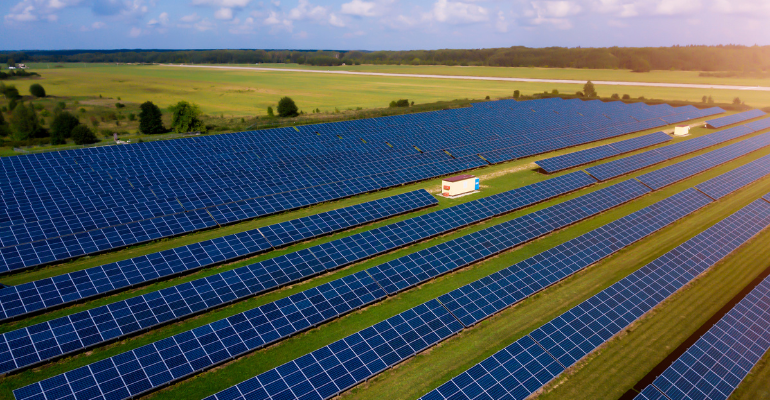
In recent years, solar energy has gained immense popularity as a clean and sustainable power source. Solar plants have become a common sight as the world embraces renewable energy solutions. One of the key advantages of solar plants is their ease of maintenance. In this article, we will explore why solar plants are easy to maintain and provide valuable insights on how to ensure their optimal performance.
How Solar Plant is Easy to Maintain:
Solar plant maintenance is often perceived as a complex and daunting task. However, compared to traditional power generation systems, solar plants offer several advantages in terms of maintenance. Let's delve into the reasons why solar plants are easy to maintain:
Solar plants primarily consist of photovoltaic (PV) panels, inverters, and a mounting system. Solar plants have minimal moving components, unlike conventional power plants involving complex machinery with numerous moving parts. This inherent simplicity significantly reduces the risk of mechanical failures and the need for regular repairs.
Solar panels, the core components of a solar plant, are designed to withstand various environmental conditions and have a long lifespan. Most solar panels come with a warranty of 25 years or more, ensuring reliable performance over an extended period. Solar panels can continue generating electricity efficiently for decades with proper installation and routine maintenance.
Solar plants require minimal maintenance due to their robust design and fewer components. The critical maintenance activities involve regularly cleaning the solar panels to remove dust, debris, or any other accumulated material that may hinder their performance. Additionally, inspecting the wiring connections and inverters periodically ensures optimal system operation.
Advancements in technology have made it easier to monitor and troubleshoot solar plants remotely. Solar plant operators can leverage monitoring systems to track the performance of individual panels, inverters, and overall system efficiency. This real-time monitoring allows for proactive maintenance and swift troubleshooting, minimizing downtime and maximizing energy generation.
Solar plants are modular in nature, comprising multiple PV panels connected in an array. This design allows for easy scalability, making it convenient to expand the capacity of the solar plant as energy demands increase. Moreover, the modular structure simplifies maintenance, as individual panels can be replaced or repaired without affecting the entire system.
Maintaining a Solar Plant: Best Practices:
Certain maintenance practices should be followed to ensure the optimal performance and longevity of a solar plant. Here are some best practices for maintaining a solar plant:
Regular Cleaning:
Dust, pollen, bird droppings, and other environmental factors can accumulate on solar panels, reducing efficiency. Regular cleaning of the panels is essential to maintain optimal energy production. Using a soft brush or a water hose with low pressure, gently clean the surface of the panels to remove any dirt or debris. It is recommended to clean the panels at least once every six months or more frequently if located in dusty areas.
Inspection and Maintenance of Wiring:
Periodically inspecting the wiring connections is crucial to ensure the proper functioning of a solar plant. Loose or damaged wiring can lead to power loss and system inefficiency. Carefully examine the wiring connections and secure any loose connections. If any damaged wires are found, they should be promptly repaired or replaced by a qualified professional.
Monitoring System Performance:
Utilizing a monitoring system allows for continuous monitoring of the solar plant's performance. Tracking energy generation, inverter efficiency, and individual panel performance can identify potential issues early on. Monitoring systems also provide real-time alerts in case of system malfunctions, enabling swift troubleshooting and maintenance.
Inverter Maintenance:
Inverters are critical in converting the direct current (DC) the solar panels generate into alternating current (AC) for use in electrical systems. Regularly inspecting inverters for any faults or abnormal behavior is essential. In case of any issues, it is advisable to contact the manufacturer or a qualified technician for repairs or replacements.
Professional Maintenance and Servicing:
While plant owners can perform regular cleaning and inspection, scheduling periodic professional maintenance and servicing is recommended. Qualified technicians can comprehensively analyze the solar plant, identify potential issues, and perform necessary repairs or replacements. Professional maintenance ensures that the solar plant operates efficiently and prolongs its lifespan.